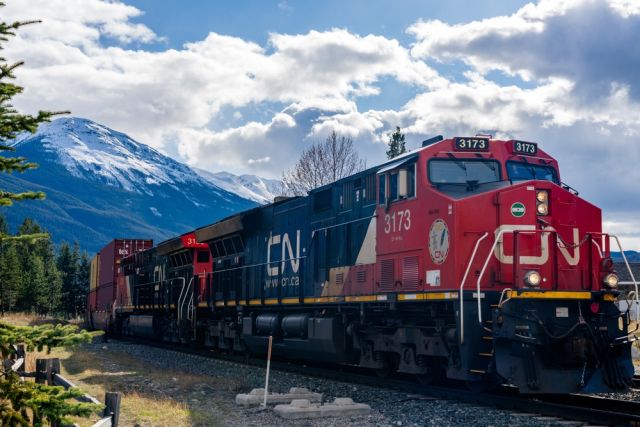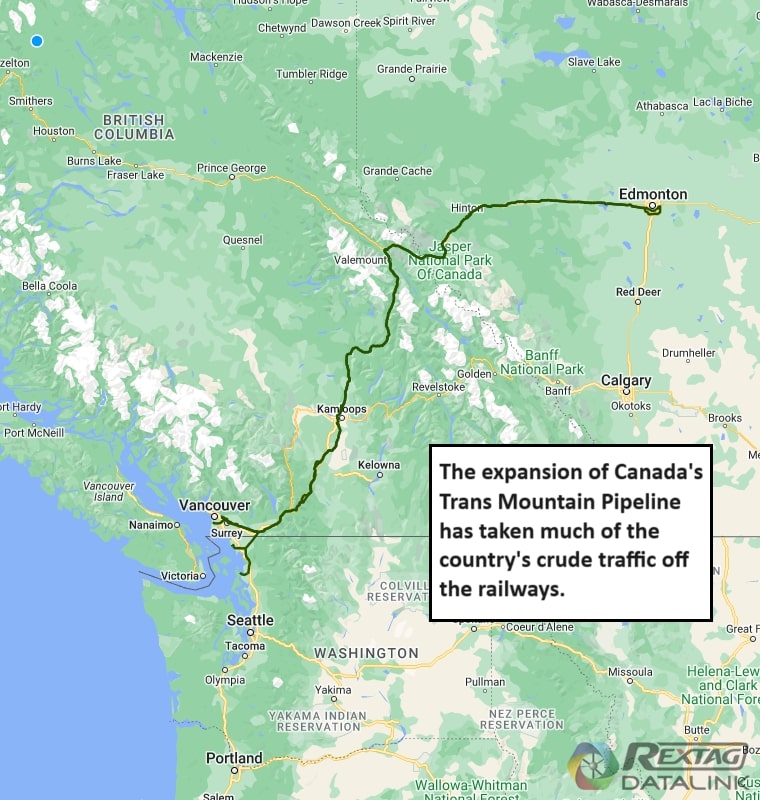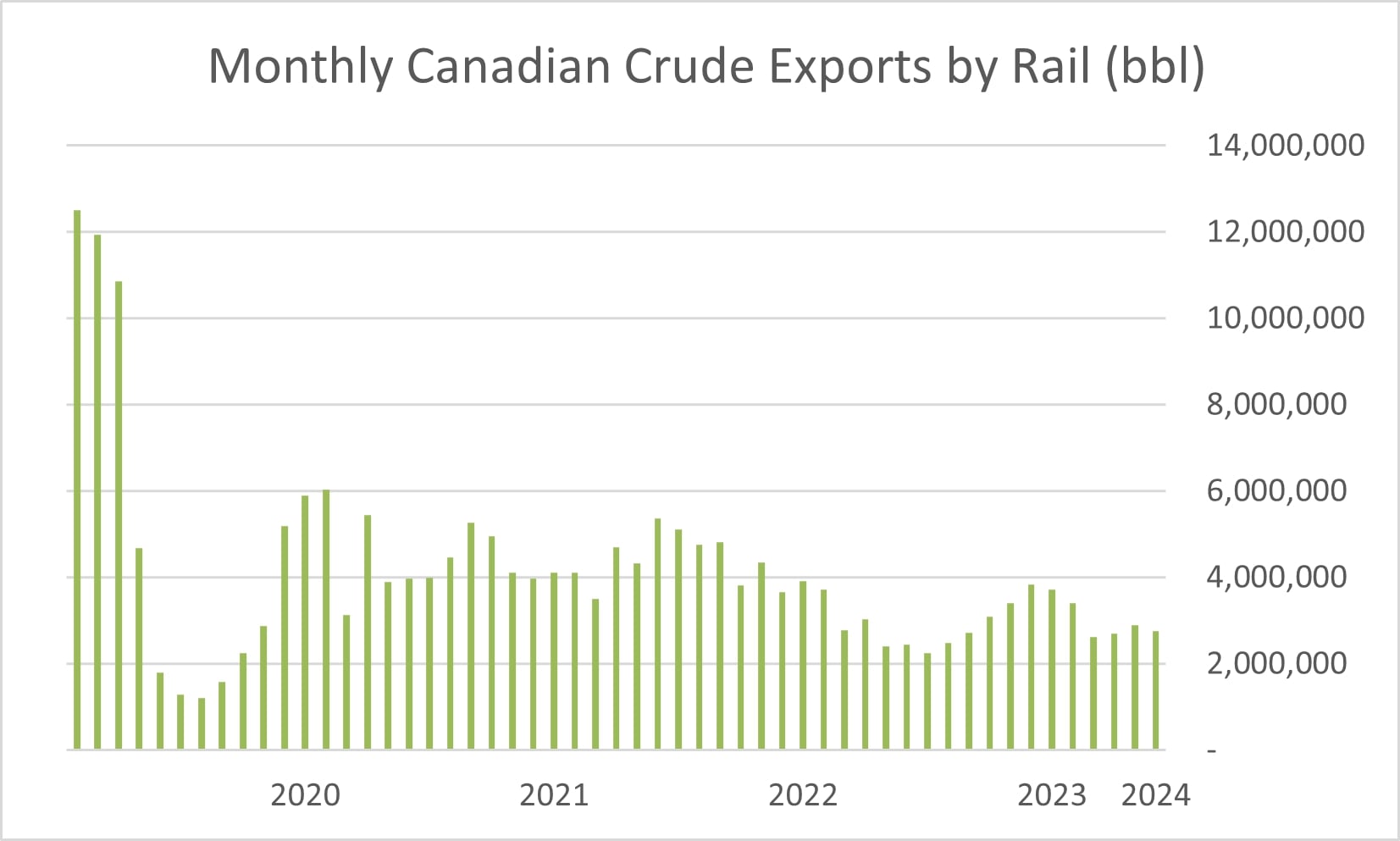
For months, Canada’s teamster union has been threatening a strike against the country’s two primary freight railroad companies, Canadian National Railway (CNI) and Canadian Pacific Kansas City (CP), over labor contracts. (Source: Shutterstock)
Nearly 10,000 rail workers walking off the job on Aug. 22 could have a massive effect on the Canadian economy, but the U.S. oil industry will be relatively unscathed, analysts said.
For months, Canada’s teamster union has been threatening a strike against the country’s two primary freight railroad companies, Canadian National Railway (CNI) and Canadian Pacific Kansas City (CP), over labor contracts.
On Aug. 18, the two companies issued notices that a worker lockout would begin in the early hours on Aug. 22.
Shortly before midnight, on Aug. 21, CPKC and CN released separate announcements that the lockout had started.
"We fully understand and appreciate what this work stoppage means for Canadians and our economy. CPKC is acting to protect Canada's supply chains, and all stakeholders, from further uncertainty and the more widespread disruption that would be created should this dispute drag out further resulting in a potential work stoppage occurring during the fall peak shipping period. Delaying resolution to this labor dispute will only make things worse," CPKC said in an email to Hart Energy before the strike began.
The Teamsters Canada Union accused the companies of not caring about safety or the stress felt by rail workers.
“Throughout this process, CN and CPKC have shown themselves willing to compromise rail safety and tear families apart to earn an extra buck. The railroads don’t care about farmers, small businesses, supply chains, or their own employees. Their sole focus is boosting their bottom line, even if it means jeopardizing the entire economy,” said Paul Boucher, president of the Teamsters Canada Rail Conference.
Canadian, U.S. and Mexican rail companies often integrate their operations, which means a strike would be a major disruption to North American traffic. Stopping rail traffic could impact certain sectors of the U.S. economy, such as the lumber industry.
However, thanks to an expanding pipeline network, the U.S. reliance on Canadian crude shipped via rail has been declining over the last decade.
“At first blush, it appears the potential Canadian rail strike will not have any consequential effects on crude oil exports to the U.S.,” said Kristy Oleszek, director of crude oil analytics at East Daley Analytics, in an email to Hart Energy.
The U.S. imports about 55,000 bbl/d of Canadian crude by rail, only 1.2% of the total 4.5 MMbbl/d of Canadian crude delivered to the U.S., Oleszek said. Railroad-shipped crude to the U.S. market decreased by 65% in May, the same month the Trans Mountain Pipeline Expansion came online, amounting to a 150,000 bbl/d drop on the railways from January 2024.
The Trans Mountain Pipeline (TMX) project greatly enhanced Canada’s ability to ship oil from its West Coast, adding about 600,000 bbl/d of capacity to the crude pipeline out of formerly landlocked Alberta.
“The recent expansion of Trans Mountain Pipeline helps a lot by providing an alternate route to move Canadian crude to the U.S. West Coast,” said Sunil Sibal, analyst for Seaport Research Partners, in an email to Hart Energy.

Oleszek said the main effect may be the drop in Canadian crude that ships out of the U.S. Traffic on the TMX took about 500,000 bbl/d of Canadian heavy sour crude out of the U.S. market. However, the U.S. still “re-exports” some Canadian crude via terminals on the Gulf Coast. The U.S. refinery supply will most likely not be affected, but exporters may see a drop in traffic.
The strike has greater potential to affect the NGL and refined products market, Sibal said, especially if it lasts for several months.
By volume, Canada moves more NGLs and refined products into the U.S. than crude.
“Combined propane and butane imports from Canada to U.S. by rail averaged 87,000 bbl/d in May 2024 and were about 100,000 bbl/d on [average] in 2023, about 70% of which was propane,” Sibal said.
Propane imports are seasonal, peaking in winter, with the majority of the product headed to the Northeast and Western U.S., but a prolonged strike could affect the price of propane in those regions, Sibal said.
Oleszek said a prolonged strike could also eventually affect Canada’s overall ability to ship crude. Canadian crude is produced from oil sands, in a process that requires producers to move the oil sands to market hubs.
“It is not uncommon for the oil sands producers to rail raw bitumen to a market hub, add the diluent to the bitumen, then move the heavy sour crude oil by pipeline to market,” she said.
Raw bitumen is a form of petroleum that’s too thick and needs diluent to be transported in a pipeline. For the time being, trucks will be able to replace the train traffic but will cause traffic jams.
“For a few weeks, the congestion will be inconsequential but will have exponential effects the longer the rail strike continues,” Oleszek said.

Recommended Reading
Ring May Drill—or Sell—Barnett, Devonian Assets in Eastern Permian
2025-03-07 - Ring Energy could look to drill—or sell—Barnett and Devonian horizontal locations on the eastern side of the Permian’s Central Basin Platform. Major E&Ps are testing and tinkering on Barnett well designs nearby.
Utica Oil Player Ascent Resources ‘Considering’ an IPO
2025-03-07 - The 12-year-old privately held E&P Ascent Resources produced 2.2 Bcfe/d in the fourth quarter, including 14% liquids from the liquids-rich eastern Ohio Utica.
Williams to Invest $1.6B for On-Site Power Project with Mystery Company
2025-03-07 - Williams Cos. did not name the customer or the location of the power project in a regulatory filing.
Energy Transition in Motion (Week of March 7, 2025)
2025-03-07 - Here is a look at some of this week’s renewable energy news, including Tesla’s plans to build a battery storage megafactory near Houston.
US Drillers Cut Oil, Gas Rigs for First Time in Six Weeks
2025-03-07 - Baker Hughes said this week's decline puts the total rig count down 30, or 5% below this time last year.
Comments
Add new comment
This conversation is moderated according to Hart Energy community rules. Please read the rules before joining the discussion. If you’re experiencing any technical problems, please contact our customer care team.





